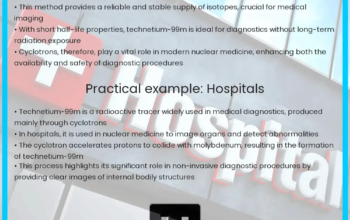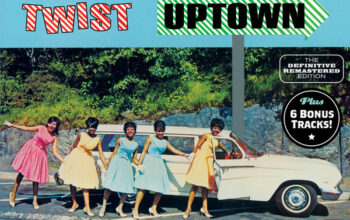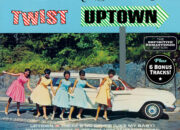The notion of the “best course” one may encounter in college is subjective, as it is heavily predicated on individual interests, academic ambitions, and life experiences. However, it is imperative to dissect this concept from various academic perspectives to truly understand the value of a college course. The best course is often identified by its ability to not only impart knowledge but also to foster critical thinking, stimulate intellectual curiosity, and cultivate essential life skills.
To explore this topic comprehensively, a plethora of elements should be considered. We can assess the type of knowledge acquired, the teaching methodologies employed, the relevance of course material to real-world applications, and the overall impact on students’ personal and professional growth.
Firstly, the thematic breadth of the course material is a prime factor influencing its standing. For instance, courses that delve deeply into the sciences, such as Organic Chemistry or Quantum Physics, provide rigorous technical knowledge. These subjects challenge students’ cognitive abilities and enhance problem-solving skills, pivotal in fields ranging from pharmaceuticals to engineering. Engineering courses that encompass both theoretical frameworks and practical applications demonstrate how principles of physics can be harnessed to solve real-world issues, thereby augmenting their appeal.
Conversely, courses in the humanities, like Philosophy or Comparative Literature, offer a different kind of intellectual engagement. They provide students with an understanding of diverse cultures, ethical frameworks, and the complexities of human thought. Such courses encourage dialectical reasoning, nurturing students’ abilities to construct and deconstruct arguments, a skill invaluable in any discourse. The importance of empathy and cultural competency fostered through the study of humanities cannot be overstated, as they are crucial in an increasingly interconnected world.
Another salient aspect is the pedagogical approaches utilized by instructors. Best-in-class courses often feature dynamic and interactive teaching methods. For example, courses that incorporate project-based learning or experiential learning opportunities can have a lasting impact. In the realm of business, courses that simulate real-world environments through case studies or internships allow students to synthesize theoretical knowledge and practical skills. Such immersive experiences are instrumental in facilitating deeper learning and retaining information—skills that persist long after graduation.
Moreover, it is essential to consider the significance of interdisciplinary studies. Courses that blend multiple fields—such as Environmental Science, which integrates biology, chemistry, and social sciences—allow students to view problems through a multifaceted lens. This approach fosters holistic understanding, equipping students with the ability to tackle complex issues that do not exist in silos. For instance, a course on Climate Change can elucidate not only the scientific underpinnings but also the socioeconomic impacts, advocating for a comprehensive perspective among future leaders.
Another defining characteristic of excellent college courses is their aptitude for inspiring passion and cultivating a sense of purpose. Courses that align with students’ intrinsic interests or professional aspirations—such as Art History for those inclined toward the creative sector or Computer Science for future tech innovators—often engender a profound appreciation for the subject matter. This emotional engagement significantly enhances motivation and commitment, thereby elevating the course experience.
In addition to the intellectual and emotional benefits, the best college courses often impart practical skills that extend beyond academia. For instance, courses that focus on Communication, Negotiation, or Leadership prepare students for interpersonal interactions in their professional lives. The methodologies encompassing team dynamics, conflict resolution, and persuasive communication are invaluable, equipping students to navigate the complexities of the workplace post-graduation.
Furthermore, mentorship is a pivotal component in the landscape of a successful course. Instructors who exhibit genuine interest in nurturing students’ growth contribute to a more enriching educational experience. A course led by a passionate educator who encourages inquiry and fosters a collaborative learning environment often becomes a transformative experience for students. Building relationships with faculty can lead to networking opportunities and potential career paths, making the course experience all the more enriching.
In a rapidly evolving educational landscape, technology has also revolutionized how courses are delivered and experienced. Online platforms now allow students access to a global repository of knowledge, enabling them to transcend geographical barriers. Blended learning environments, which combine online and in-person elements, afford flexibility, accommodating diverse learning styles and preferences. This adaptability enhances the overall educational experience, catering to a broad spectrum of learners.
Moreover, the aftermath of a well-structured course extends beyond the realm of grades and credit hours. Courses that inspire research engagement can motivate students to contribute to their field meaningfully. Participation in thesis projects or lab work can ignite a passion for discovery and innovation, often leading students to pursue graduate studies or careers in research, further emphasizing the lasting impact of their college learning experiences.
In summary, defining the “best course” one has ever taken in college encompasses a myriad of factors. From the depth of content and pedagogical tactics to the cultivation of key life skills and emotional engagement, the optimal learning experience is multifaceted. As students navigate their academic journeys, identifying and pursuing these enriching experiences can have far-reaching consequences, shaping not only their professional trajectories but also their personal development. Thus, the best college course transcends the boundaries of mere instruction, forging a transformative path toward lifelong learning and growth.












